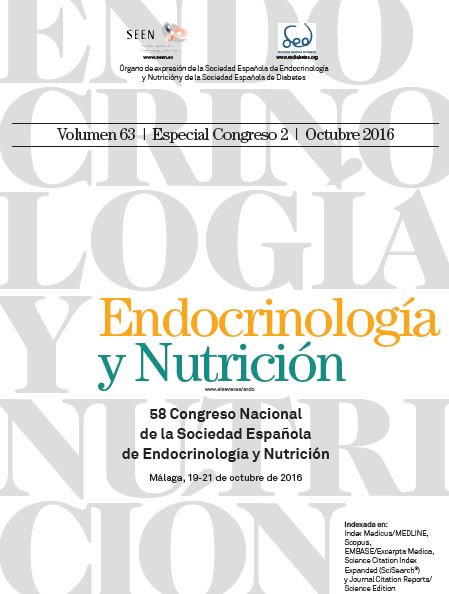51 - Metabolic syndrome affects the severity of acute pulmonary embolism
aComenius University. Jessenius Faculty of Medicine and University Hospital. Eslovaquia. bDepartment of Physiology. Comenius University. Jessenius Faculty of Medicine. Eslovaquia. cBiomedical Center “BioMed Martin”. Comenius University in Bratislava. Jessenius Faculty of Medicine. Eslovaquia. dDepartment of Biochemistry. Jessenius Faculty of Medicine. Comenius University. Eslovaquia.
Introduction: Venous thromboembolic disease (VTE) is the third most common cardiovascular disease with high mortality rate. Many factors are known to influence the development of VTE, including metabolic syndrome (MS), which twofold increases the risk of VTE. However little is known about the impact of MS on the severity of VTE.
Methods: 64 patients with acute pulmonary embolism (PE) were enrolled to study and divided into two groups according to the presence of MS – 31 patients in MS group and 33 patients in non MS group. The severity of PE was assessed by laboratory markers (N-terminal brain natriuretic peptide, troponin I), echocardiographic markers (size and function of right ventricle) and the class of obstructed branch of pulmonary artery (main, left or right, lobar and segmental pulmonary artery). In addition the risk stratification of PE recommended by European Society of cardiology was used in both study groups.
Results: Troponin I was positively associated with the presence of MS in both sexes (p = 0.038). Significantly more severe thromboembolic obstruction (main, left or right pulmonary artery) was observed in men with MS (p = 0.015). When the mortality risk for PE was stratified 29.2% of patients with MS (16.3% of men) and only 6% of patients without MS (3% of men) were in high risk of mortality. Low mortality risk for PE was found in 25.75% of patients with MS (16.1% of women) and 51.5% of patients without MS (27.3% of women).
Conclusions: Metabolic syndrome is associated with the severity of acute pulmonary embolism and worsens the 30-day outcome of these patients. Men are in higher risk of mortality for PE compared to women.
The study was supported by grant APVV-14-0153.





